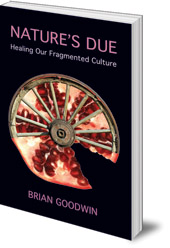Nature's Due
Healing Our Fragmented Culture
Quick Look
- By an acclaimed author in his field
- Challenges the ideas of our modern scientific culture
- Far-reaching consequences for how we understand and relate to the natural world
Challenges modern ideas on the interaction of science, nature and human culture, with far-reaching consequences for how we govern our world.
Description
-- By an acclaimed author in his field
-- Challenges the ideas of our modern scientific culture
-- Far-reaching consequences for how we understand and relate to the natural world
Our scientific culture, which gave birth to modern technology, is in desperate need of change. Science has largely meant groups of specialists working in separate disciplines, seeking answers to narrowly defined questions which have little or nothing to do with the living world. The last few years, however, have seen a shift to a more integrated, holistic approach to how we view and understand our world.
There is still much work to be done. Most modern people have come to accept a fragmented culture whereby science isolates us from the natural world. As a result, we feel we can govern it and dominate it as we please. Brian Goodwin, acclaimed author of How the Leopard Changed Its Spots, argues for a view of nature as complex, interrelated networks of relationships. He proposes that, in order for us to once again work with nature to achieve true sustainability on our planet, we need to adopt a new science, new art, new design, new economics and new patterns of responsibility. We must be willing to pay nature its due: to recognise what we owe to the natural world and resist exploiting it solely for our own ends.
This is an ambitious, wide-ranging book with far-reaching consequences, and will be essential reading for all those interested in how nature and human culture can co-exist in the future.
Reviews
'This remarkable book is Brian Goodwin's biological testament, summing up the work he has been doing throughout his career since the 1960s along with the many major scientific advances since that period … In understanding nature more deeply, we understand ourselves more profoundly. This book is a brilliant articulation of this process, pointing to the emergence of a new culture of co-operation and harmony.'
-- David Lorimer, Scientific and Medical Network Review, Summer 2007
'Superb … highly recommended.'
-- Yoga Scotland, September 2007
'Goodwin's book holds in it the excitement of new beginnings. It reads like a primer for the Great Work. It has a breath-taking range of scholarship that takes the reader on a journey of discovery through cultural history, scientific history, paradigm change, modern systems theory, chaos theory, evolutionary biology and a new field called biological hermeneutics.'
-- Edmund O'Sullivan, Resurgence, November-December 2007
'Thought-provoking, clearly conceived vision of health in individuals, communities and ecosystems. A call for a more integrated, holistic approach to how we view and understand our world … words of wisdom during our global crises.'
-- New Leaf News, Spring 2009
'Nature's Due is a fascinating and important book. It's one of those books that can frunish you with serviceable building blocks for a worldview.'
-- www.greenprophet.com
Author
Professor Brian Goodwin (1931-2009) was born in Montreal and studied biology at McGill University before reading mathematics at the University of Oxford and doing a PhD at the University of Edinburgh with C.H. Waddington. His university appointments were at Sussex and the Open University, and he was on the Science Board of the prestigious Santa Fe Institute in New Mexico. He taught Holistic Science at Schumacher College in Devon, UK. He is the author of How the Leopard Changed Its Spots: the Evolution of Complexity and Signs of Life: How Complexity Pervades Biology, as well as several other books.
Links
You may also be interested in:
Why Genes Are Not Selfish and People Are Nice by Colin Tudge
The Intuitive Way of Knowing: A Tribute to Brian Goodwin edited by David Lambert and Chris Chetland

